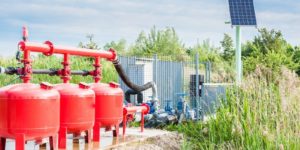With the rapid increase in innovations and research, farming continues to evolve and experience better efficiency. Farming will always be an integral part of our collective societies.
However, the average farmer attends to several matters all day. One factor that can help farmers to handle their responsibilities optimally is farm maintenance. We’ll mention the specific benefits of farm maintenance and the steps to create effective plans that work every time.
Benefits of farm maintenance
“Farm maintenance” encompasses all the activities for checking and repairing farm infrastructure to prevent asset breakdown or failure. These will range from farm equipment like tractors to physical structures like barns. The benefits of undertaking extensive farm maintenance protocols may not be plain to everyone. So, here are four benefits of adopting farm maintenance.
Availability
Availability is a metric that measures if the equipment is ready to perform at its full capacity. Equipment that is not properly maintained is prone to failure. This means your farm processes may experience unexpected downtime due to the lack of equipment availability.
Farm maintenance ensures that all equipment is maintained according to their schedules and requirements. This results in high equipment availability mitigating any issues pursuing continuous production requirements.
Cost control
Due to wear and tear, farm infrastructure will always require upkeep. That upkeep can often be costly. Through planned maintenance, farmers can ensure that any repairs and servicing of farm infrastructure are well justified – eliminating unnecessary expenses. Machinery and equipment last longer, sometimes well beyond their expected lifespan.
When machines break down unexpectedly, you need to engage in reactive maintenance – far more costly than harming a robust farm maintenance plan and adhering to it.
Improved productivity
You know the importance of a schedule in running a farm. Especially for livestock, there are usually rigid timelines for activities like feeding, milking, cooling, and storage. Modern farms rely on specialized equipment for each of these processes. Having well-maintained equipment in place ensures that the machines are functional when required. This helps to cut down any wastage of time or resources that might have gone into fixing damaged equipment. Farm maintenance is a key piece in the puzzle of efficient farm operations. Functional assets and machinery make meeting market deliveries and production deadlines easier.
Statutory compliance
Farmers must adhere to laws and guidelines from government authorities and departments to stay operational. Well-maintained equipment and infrastructure reduce the chances of contamination in animal products. This, in turn, reduces the risk of penalties. Farm maintenance helps to maintain strict adherence to the guidelines of the local jurisdiction and reduces the risk of losses.
Effective farm maintenance plan
A structured farm maintenance plan ensures maintenance activities don’t get derailed by any factors. You need to create and implement a maintenance plan that addresses the specific requirements of your farm. Effective farm maintenance is key to running a profitable livestock farming business.
Taking stock
First, your need to assess farm maintenance needs and requirements. You should factor in your goals and objectives. You also need to create an inventory list of all the equipment and buildings within your farm. Consult the OEMs and manuals of the respective equipment to get an idea of the recommended maintenance frequencies and steps to be taken. You also need to collect all available data and information regarding your farm relevant to operations and maintenance.
Assign priority
All maintenance requirements in your farm do not have the same priority. Different processes contribute to your bottom line differently. The equipment also differs in availability requirements. You need to assess all the equipment, their maintenance requirements, and availability needs to assign a priority for different maintenance activities.
Farm maintenance plan
With the information on farm equipment and priorities, you can create a maintenance schedule. Consider all the factors and information previously collected while doing so. You can additionally take inputs from farm employees and fellow farms while creating the schedule. Your schedule should not have time and staff overlaps.
No-fail system
The difficult part of the farm maintenance plan is its implementation and adherence to it. You need to create a system where farm maintenance activities are executed without fail. You need to create procedural steps and checklists for each maintenance activity you have created. You can upload the same to a cloud-based computerized maintenance management system (CMMS). This makes all the information and guidelines available to every farmhand from anywhere. Maintenance automation also must be considered to ensure maintenance activities happen without fail.
Baby steps…
Many maintenance activities are regularly performed on farm equipment and buildings. A farm maintenance plan is simply taking a logical approach to maintenance activities in a farm considering the needs of the farm.
A structured way of performing maintenance activity is required to ensure all farm processes run without a hitch. The benefits of farm maintenance range from complying with regulations to improved profitability. The toughest task is to stick to the maintenance plan created. Modern farms should consider digital solutions to tackle this problem, and CMMS is the go-to answer for the problem.







